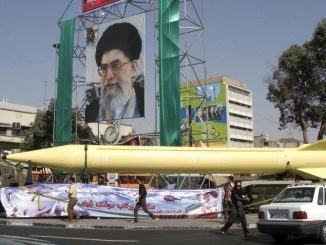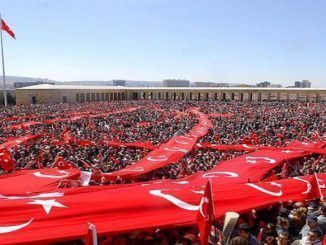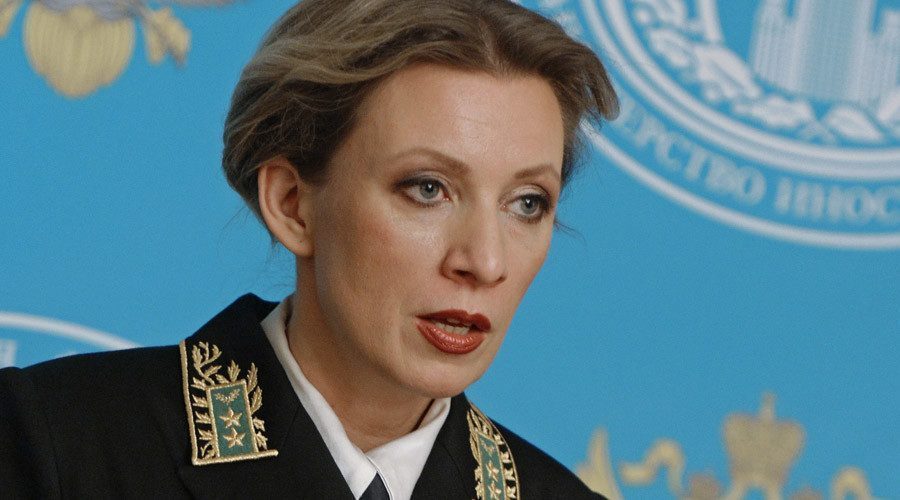
The United States’ new imposed sanctions on some Iranian individuals and entities led to a rise in oil prices rose on Friday, after a series of events led to an escalate in the tension between the two countries.
Barack Obama, The former US leader, was behind the historic Iran nuclear deal with P5+1 powers, agreed upon last year, which saw Tehran agree to amend its nuclear output in order to lift all nuclear-related economic sanctions, freeing up tens of billions of dollars in oil revenue and frozen assets.
After lifting the sanctions, Iranian president Hassan Rouhani visited Europe and made deals that worth billions of dollars. European companies started looking for investment opportunities in the growing Iranian market.
However, Trump’s election might change the whole game and threaten the development that was built in the past months.
Trump has said during his election campaign that the deal as “disastrous” and said it would be his “number one priority” to dismantle it.
These threats became clearer after Trump’s inauguration, as he signed an executive order temporarily barring thousands from seven countries in the Middle East and Africa, including Iran, from obtaining visas to travel to the United States.
In a clear challenge, a ballistic missile test was conducted by Iran on Sunday.
A U.S. defense official said that the missile test ended with a “failed” re-entry into the earth’s atmosphere, and later German sources said that the test included nuclear-capable missiles that are considered a breach of the nuclear deal.
After that Trump announced that “we’re officially putting Iran on notice”, and declared new sanctions against Iran later.
Higher oil prices
Front-month U.S. West Texas Intermediate crude futures settled up 29 cents, or 0.5 percent, to $53.83. The contract gained more than 1 percent for the week.
Brent crude futures settled 25 cents higher at $56.81 a barrel, giving it a 2 percent gain on the week, the first significant weekly rise this year.
Volume in U.S. crude futures on Friday was relatively low, with about 440,000 contracts changing hands by 3:30 p.m. EST (2030 GMT), short of the 200-day moving average of 528,000 contracts a day.
“I think that the consensus is that Iran supported the market, but I think that it’s probably more on the stronger jobs report leading to higher demand in the near term,” said Carl Larry, director at Frost & Sullivan.
The news added to volatility in what had already been a day of choppy trading. Analysts said the market is torn between promised cuts from the Organization of the Petroleum Exporting Countries (OPEC) and fears over rising U.S. shale oil production.
“While the market is taking these actions in stride so far as unlikely to result in a larger military conflict that would put Persian Gulf crude oil supplies at risk, the odds of that scenario are certainly higher than a week ago,” wrote Timothy Evans, energy analyst at Citi Futures in New York.
New sanctions on Iran
In a move designed to punish Iran for testing its ballistic missile program, the US Treasury Department said it had published a list of 13 people and 12 entities facing new sanctions. The move signaled a marked escalation of tensions between the two countries and comes just hours after the President said Tehran was “playing with fire”.
“The Islamic Republic of Iran is the world’s leading sponsor of terrorism and engages in, and supports, violent activities that destabilize the Middle East,” said US National Security Adviser Michael Flynn.
“That behavior seems continuous despite the very favorable deal given to Iran by the Obama administration. These sanctions target those behaviors.”
Trump told reporters on Thursday when asked if military action was off the table in terms of Iran, that “nothing is off the table”.
Some of the individuals and entities involved in the US sanctions are based in the United Arab Emirates, Lebanon and China.
“This action reflects the United States’ commitment to enforcing sanctions on Iran with respect to its ballistic missile program and destabilizing activities in the region and is fully consistent with the United States’ commitments under the Joint Comprehensive Plan of Action,” the US Treasury statement said.



